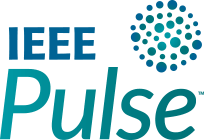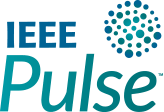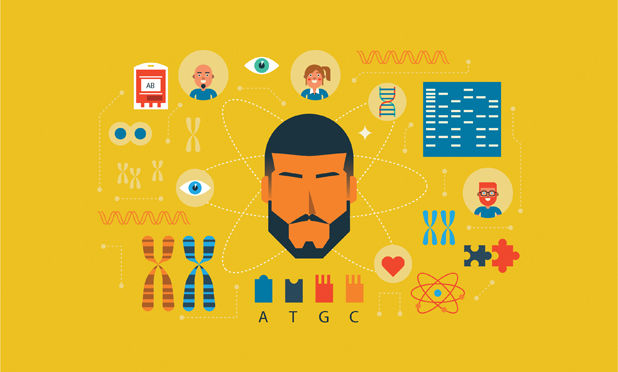Most genetic testing requires a doctor’s prescription. In April 2017, however, the U.S. Food and Drug Administration (FDA) gave genetics company 23andMe the go-ahead to sell DNA tests assessing the user’s level of risk for ten health conditions, including Parkinson’s disease and late-onset Alzheimer’s disease. This was followed nearly a year later by approval to sell tests for three mutations in the genes BRCA1 and BRCA2 linked to increased breast cancer risk. These remain the only FDA-approved direct-to-consumer (DTC) tests for genetic risk of disease.
Genetic testing and counseling have long been used worldwide to help individuals and families learn more about inherited diseases. DTC genetic testing, in contrast, is relatively new and allows people—without a prescription or guidance from a genetic counselor or medical practitioner—to find out what disease- associated genes they may carry.
“A genetic counselor ensures the patient has a good understanding of the situation and their options so they can make informed, well-educated decisions,” says Cecelia Bellcross, associate professor and director of the Emory University School of Medicine’s Genetic Counseling Training Program (Figure 1). Genetic counselors assist patients in multiple ways:

professor and director of the Emory
University School of Medicine’s Genetic
Counseling Training Program.
(Photo courtesy of Cecelia Bellcross.)
- collect detailed medical and family history information
- perform a risk assessment to identify genetic conditions for which the patient may be at risk
- educate the patient and his or her family
- discuss the benefits and limitations of testing
- go over laws regarding insurance discrimination
- determine whom in the family to test and which tests to order.
The advent of DTC genetic tests means that individuals can access the results of some DNA tests without any of this assistance. There are dozens, if not hundreds, of online companies that claim they can use your DNA to tell you things, says Bellcross. Although 23andMe has FDA approval and solid evidence supporting its disease predisposition and carrier status tests (Figure 2), other tests, such as those purporting to identify child or athletic talent or nutrigenetic tests that tell you what foods or supplements you should eat, are more suspect in terms of validity.
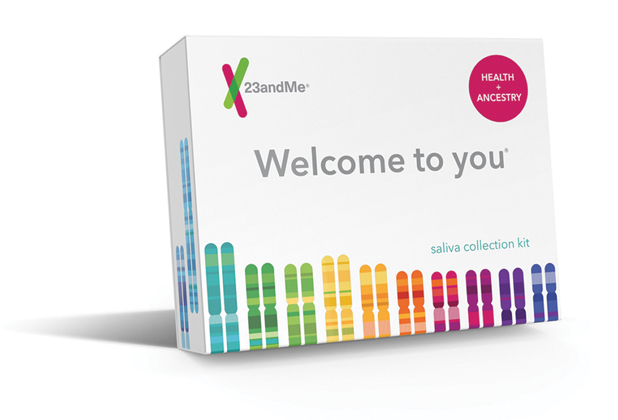
DNA, Inc.
Stacey Detweiler, a medical affairs associate and genetic counselor with 23andMe (Figure 3), emphasizes that the company’s genetic health risk and carrier status reports meet FDA requirements and are not meant to be diagnostic. “There was a lot of work done demonstrating the accuracy of the results, the clinical validity, and then also that users really understand this information,” says Detweiler. “The genetic health risk report covers conditions where genetics can play a significant role, but there are also nongenetic factors involved, like lifestyle and environment. The next step is to share this information with a healthcare provider and figure out the appropriate next actions.”

medical affairs associate and genetic
counselor. (Photo courtesy of PITER2017.)
The genetic health risk tests offered by other companies are physician requested. Color Genomics, e.g., offers physician-requested genetic testing and complementary counseling with board-certified genetic counselors (Figure 4). “This can be profoundly impactful information. It can really change the course of someone’s life,” says Scott Topper, vice president of clinical operations at Color Genomics (Figure 5). “We believe that people are in the best position to take the most meaningful action on this information if they are in the context of a clinical care arrangement.”
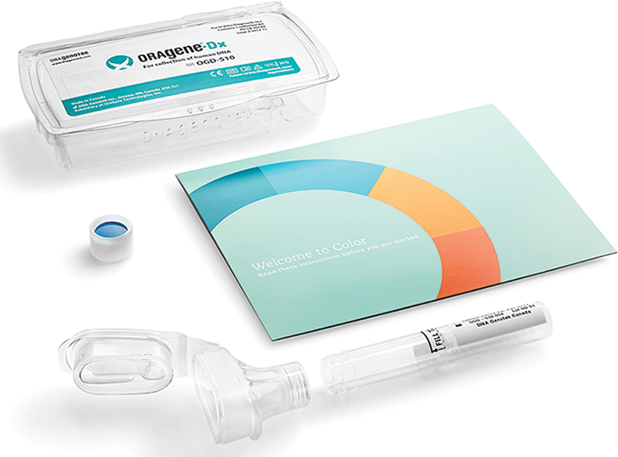

clinical operations at Color Genomics.
(Photo courtesy of Color Genomics.)
Topper says that being a physician-ordered test also allows Color Genomics to employ the most comprehensive and newest technology in genetic analysis. 23andMe, e.g., is approved to perform a specific type of genetic test, called single nucleotide polymorphism analysis. A certified clinical genetic testing laboratory, like Color Genomics, can use the latest technology, called next-generation sequencing. For evaluating breast cancer risk, 23andMe’s FDA approval restricts the company’s tests to look for only three mutations in the two breast cancer genes; more than 5,000 different mutations have been documented in these two genes, and labs like Color Genomics can perform comprehensive analyses.
Despite these disadvantages, proponents of DTC genetic testing say it has the power to provide meaningful health information directly to individuals who might otherwise lack access to it. “Even if a variant is not found, there is a lot of information in these reports, and it’s helping people understand how genetics as well as other factors plays a role in health,” Detweiler explains. “It can facilitate a conversation with their healthcare provider that maybe would not have happened otherwise.”
Potential Drawbacks
Many concerns revolve around the clinical usefulness of DTC genetic tests. Knowing whether one has a gene related, e.g., to a disease is a long way from a diagnosis. Genetic testing provides one piece of information in the complex puzzle that is a person’s susceptibility to diseases with genetic components. Other factors, such as family background, medical history, and environment, all contribute to the likelihood of developing many diseases. Possessing a particular gene variant does not necessarily mean one will develop a disease, while lacking a particular gene variant does not necessarily mean the disease will not occur.
There is also the issue of DTC tests’ effects on people, both mental and behavioral. Research in this area is in the early stages; so far, however, the results seem to indicate that the effects are very minimal (if there are any at all) in terms of changing lifestyle behaviors, such as diet and exercise, to reduce risk. “The research I’ve seen does not show much evidence of behavior change following DTC genetic testing,” says Anna Middleton, who is both chair of the Association of Genetic Nurses and Counselors in the United Kingdom and head of society and ethics research with the Wellcome Genome Campus in Cambridge, United Kingdom (Figure 6). “For all of us to live longer, healthier lives, we need to eat healthy and do more exercise—and you don’t need a DTC test to tell you that.”

Association of Genetic Nurses and
Counselors in the United Kingdom, sees
few lifestyle changes following DTC
genetic testing. (Photo courtesy of Anna
Middleton.)
DTC skeptics say the concerns are not just medical in nature. The industry is new, growing quickly, and largely unregulated, says Andelka Phillips, research associate at the University of Oxford’s Centre for Health, Law and Emerging Technologies (HeLEX) (Figure 7). She’s been compiling a list of companies in the DTC genetic testing business and reviewed the contracts used by dozens of companies offering health-related services.
Phillips explains that a number of significant questions should be raised:
- whether the services are fit for their claimed purposes
- whether the genetic data and other personal information collected are being stored securely
- whether sufficient protection for privacy is provided
- whether companies are sufficiently transparent in their claims about benefits and limitations of their services
- whether consumers actually understand the contracts they enter into when purchasing these tests.

associate at the University of Oxford’s
Centre for Health, Law and Emerging
Technologies, has reservations about
DTC genetic testing.
(Photo courtesy of Andelka Phillips.)
“When a person orders a genetic test online, they are giving up a physical sample of themselves and potentially sensitive personal information,” says Phillips. And, she adds, most people do not read or fully understand the lengthy and complicated contracts companies employ. Phillips would like to see improvements in contracts and privacy policies in the DTC testing industry. “There’s a real need for more transparency and more informational resources to help people understand what can be done with one’s data,” she argues.
Industry-specific regulations would afford greater protection for consumers, but, because most tests are sold online, it is a truly international industry, and the regulatory environment is complex. If legislation is not forthcoming, Phillips favors developing an industry code of conduct and a method of certification for DTC testing companies.
The Future Is Here
Despite these reservations, the DTC genetic testing industry is white hot right now and shows no signs of slowing down. The number of people who have had their DNA analyzed through DTC companies more than doubled during 2017 and now exceeds 12 million. “This is an exciting time for genetics; the things we can do right now were almost unthinkable ten years ago,” says Topper. “It is now possible to use your personal knowledge of your genetics to guide decisions about your health. For the first time in history, you have a technology that can help you understand your risks for certain important hereditary conditions, such as cancer and heart disease, that is finally accessible to everyone who could benefit from it.”
Bellcross agrees that genetic testing holds promise but cautions that “we are pushing into things we don’t fully understand or have the infrastructure to deal with.” As she explains, “The technology has outpaced our ability to interpret and regulate it. The Human Genome Project cost 3 billion dollars and took 13 years to sequence one genome. Now we can sequence a genome in under 48 hours for less than 1,000 dollars.”
It is important to remember that, as people, we are more than just our DNA. Our health reflects the diverse contributions of our genes, life experiences, and social environments. DNA analyses can sometimes provide valuable pieces of information, but reducing us to just our genes does us a disservice, Middleton says. “We are starting to understand more about the complex interplay between many genes and health conditions, but we’re not really all the way there yet.”
Middleton encourages people to think about why they are taking a DTC genetic test. Is it just for fun, or do they wish an answer to a specific clinical question? “If there is something that you are genuinely concerned about, then a DTC test is probably not the way to get an answer. You’d be better off going to see a geneticist or genetic counselor,” she says. If you are considering a DTC genetic test, Middleton urges caution and careful thought. “Read the small print. See where your data ends up. Go into it with your eyes open, and think about it carefully,” she advises. “It is not a frivolous thing.”
Further Reading
- A. Burton, “Are we ready for direct-to-consumer genetic testing?” Lancet Neurology, vol. 14, no. 2, pp. 138–139, 2015.
- L. Covolo, S. Rubinelli, E. Ceretti, and U. Gelatti, “Internet-based direct-to-consumer genetic testing: A systematic review,” J. Medical Internet Res., vol. 17, no. 12, pp. 109–127, 2015.
- A. Middleton, A. Mendes, C. M. Benjamin, and H. C. Howard, “Direct-to-consumer genetic testing: Where and how does genetic counseling fit?” Personalized Medicine, vol. 14, no. 3, pp. 249–257, 2017.
- A. M. Phillips, “Only a click away—DTC genetics for ancestry, health, love…and more: A view of the business and regulatory landscape,” App. Translational Genomics, vol. 8, pp. 16–22, Mar. 2016.
- A. M. Phillips, “Reading the fine print when buying your genetic self online: Direct-to-consumer genetic testing terms and conditions,” New Genetics Soc., vol. 36, no. 3, pp. 273–295, 2017.
- J. S. Roberts and J. Ostergren, “Direct-to-consumer genetic testing and personal genomics services: A review of recent empirical studies,” Current Genetic Medicine Rep., vol. 1, no. 3, pp. 182–200, 2013.
